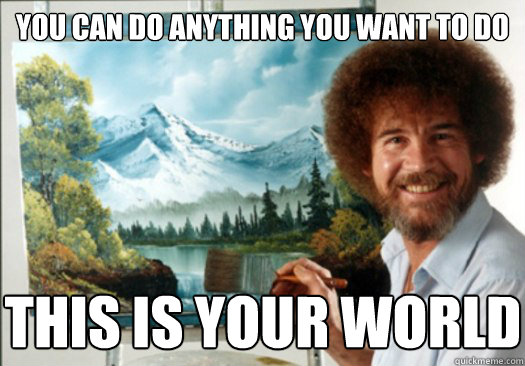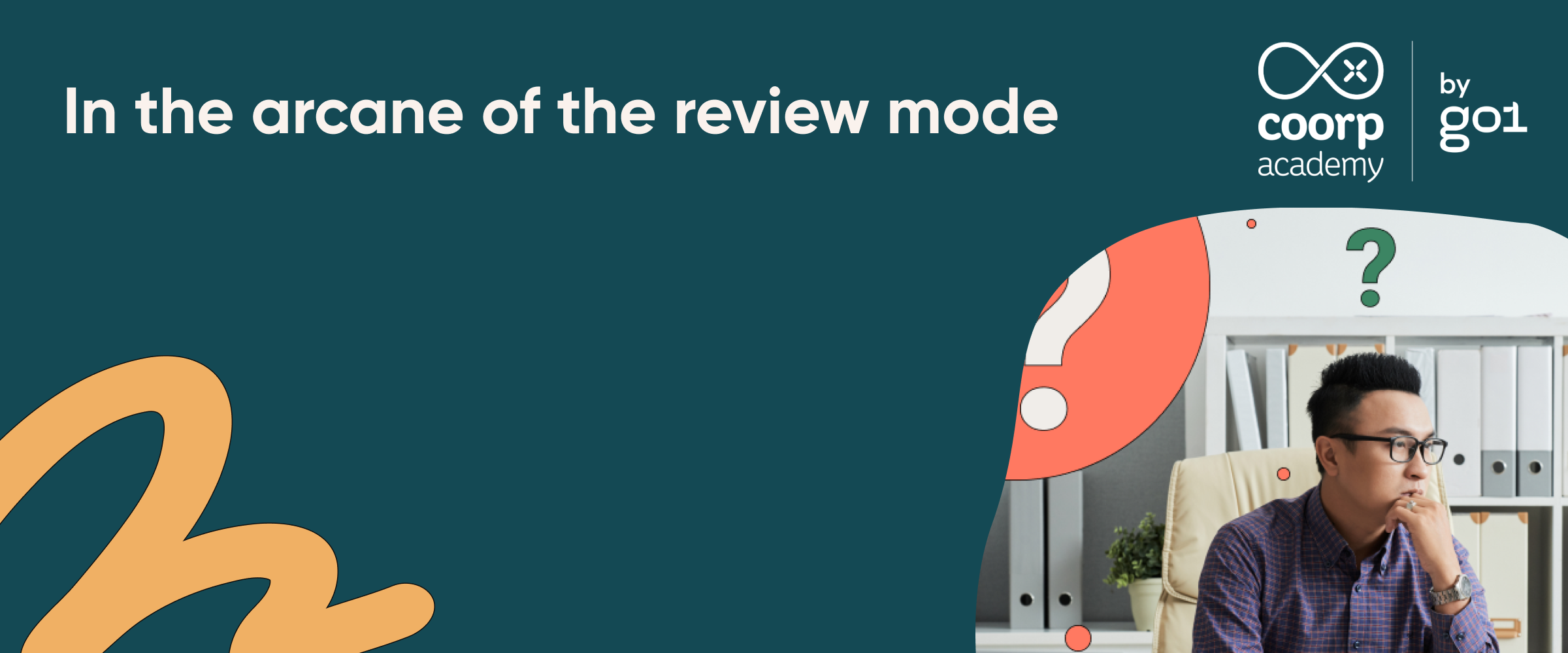Monopoly: the art of negotiation – Discover our new pedagogical innovation!
Learning Innovation
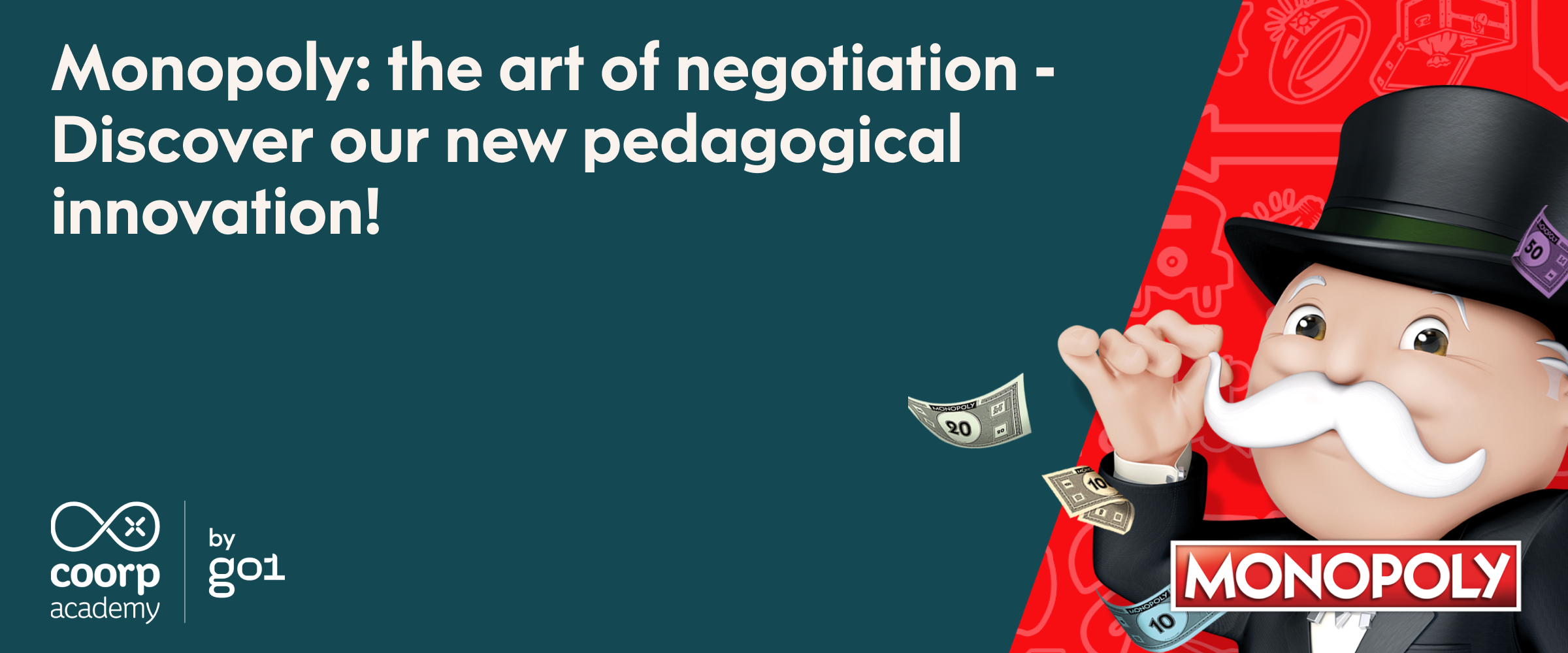
Did you know? According to Monopolypedia, Mr Monopoly is No. 13 on Forbes’ 15-name list of the richest fictional characters, with a net worth of $1.2 billion. And that’s probably because Mr. Monopoly is a master negotiator.
One of the first board games based on buying and selling land for development, it quickly became the world’s best-known board game.
We’ve all played Monopoly before. We’ve all learned how to get rich on the backs of our loved ones in order to win the game. It’s a game that lets us have fun while developing essential negotiating and strategizing skills. No wonder Churchill loved to play it.
So what does a pedagogical Monopoly look like?
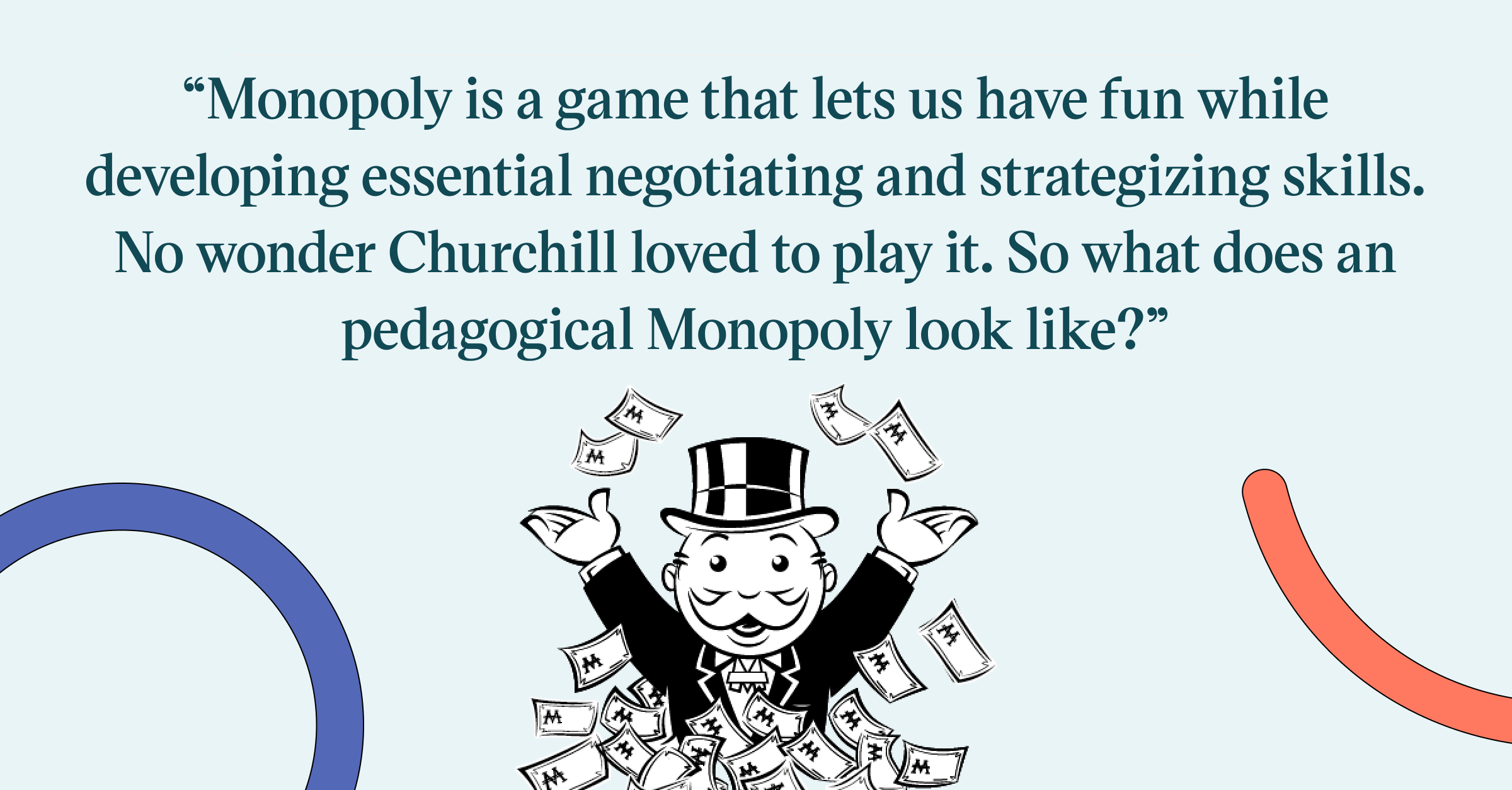
Negotiation in action
Based on the founding principle of the board game, we have adapted this module to meet a specific pedagogical objective. The aim? To develop negotiating skills.
Taking inspiration from games to develop soft skills is part of our DNA. Our partnership with Hasbro has already given rise to a number of playful, immersive formats, such as the Trivial Pursuit-inspired modules for developing general knowledge, and the Cluedo educational investigation, which aims to develop critical thinking and is one of our top 5 most consulted courses.
The principle: mobilize your negotiating skills and your sense of observation to land the ultimate property title. All this by exchanging only the shares in your initial investment.
After analyzing his possessions and those of the three owners with whom he will have to negotiate, the learner will build his negotiation strategy and action plan, and then dialogue with each of his interlocutors to achieve his objective.
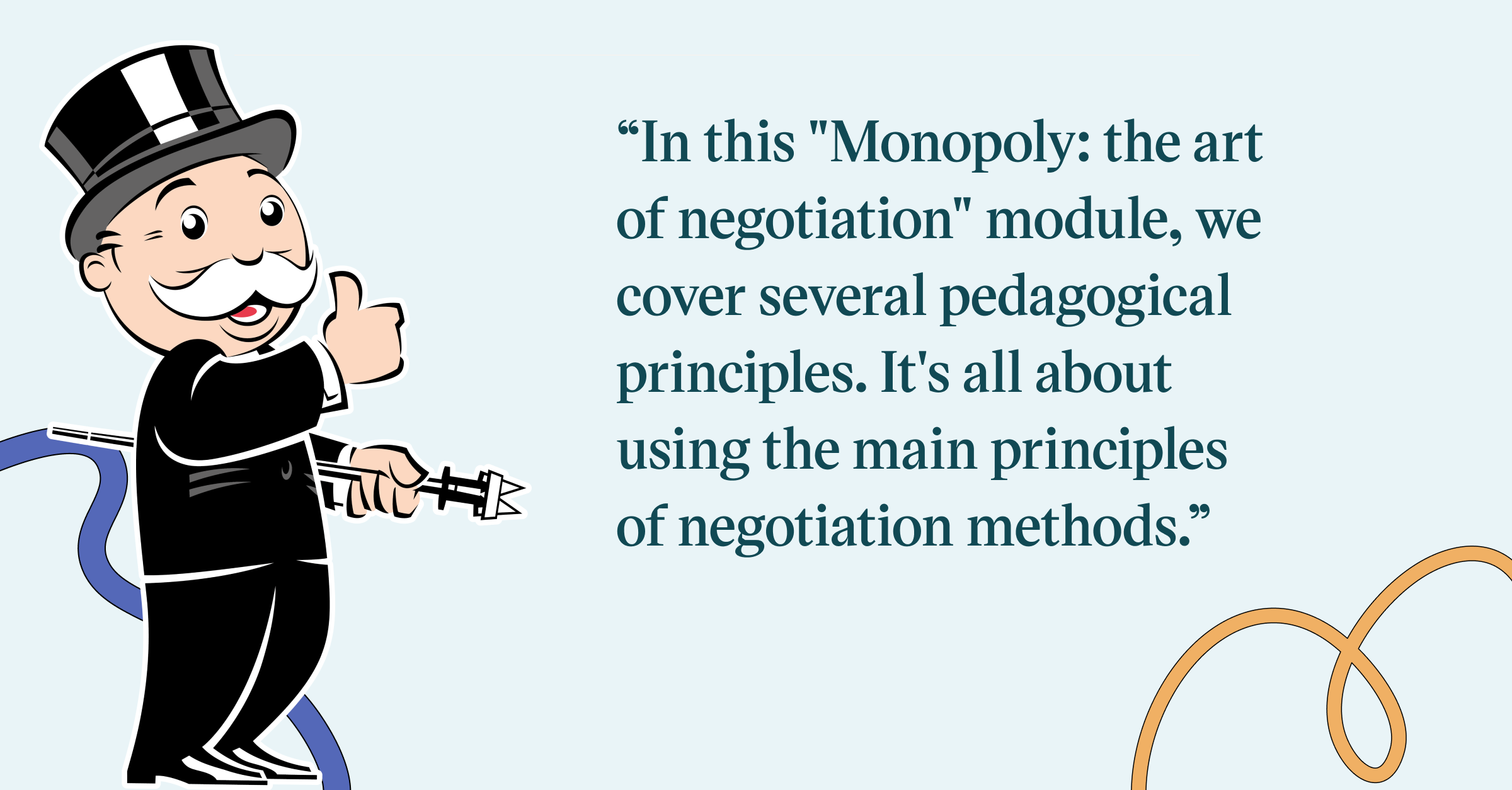
In this “Monopoly: the art of negotiation” module, we cover several pedagogical principles around negotiation:
– analysis of concrete elements upstream to prepare your strategy (property titles of each owner, interests, objectives, personality, etc.)
– application of negotiation techniques during dialogues (analysis of the personality of the other party, choice of negotiating stance, etc.).
When the learner begins the experience, they have 3 property titles in their initial stake: a main title, which will enable them to build a negotiation strategy, and two “bonus” titles, which can help them to convince the other party in the event of difficulty.
Before starting a negotiation, the learner must consult the documents available in the office, which contain various elements essential to the development of his strategy. By analyzing these various elements, the learner determines how to conduct his negotiations to achieve his objective. Once the strategy has been defined, the learner can start negotiating with the owners.
Gamified learning experience
Taking inspiration from the rules of Monopoly seemed obvious, but the learning experience had to follow! To achieve this, we created an immersive, interactive module based on the codes of the famous board game.
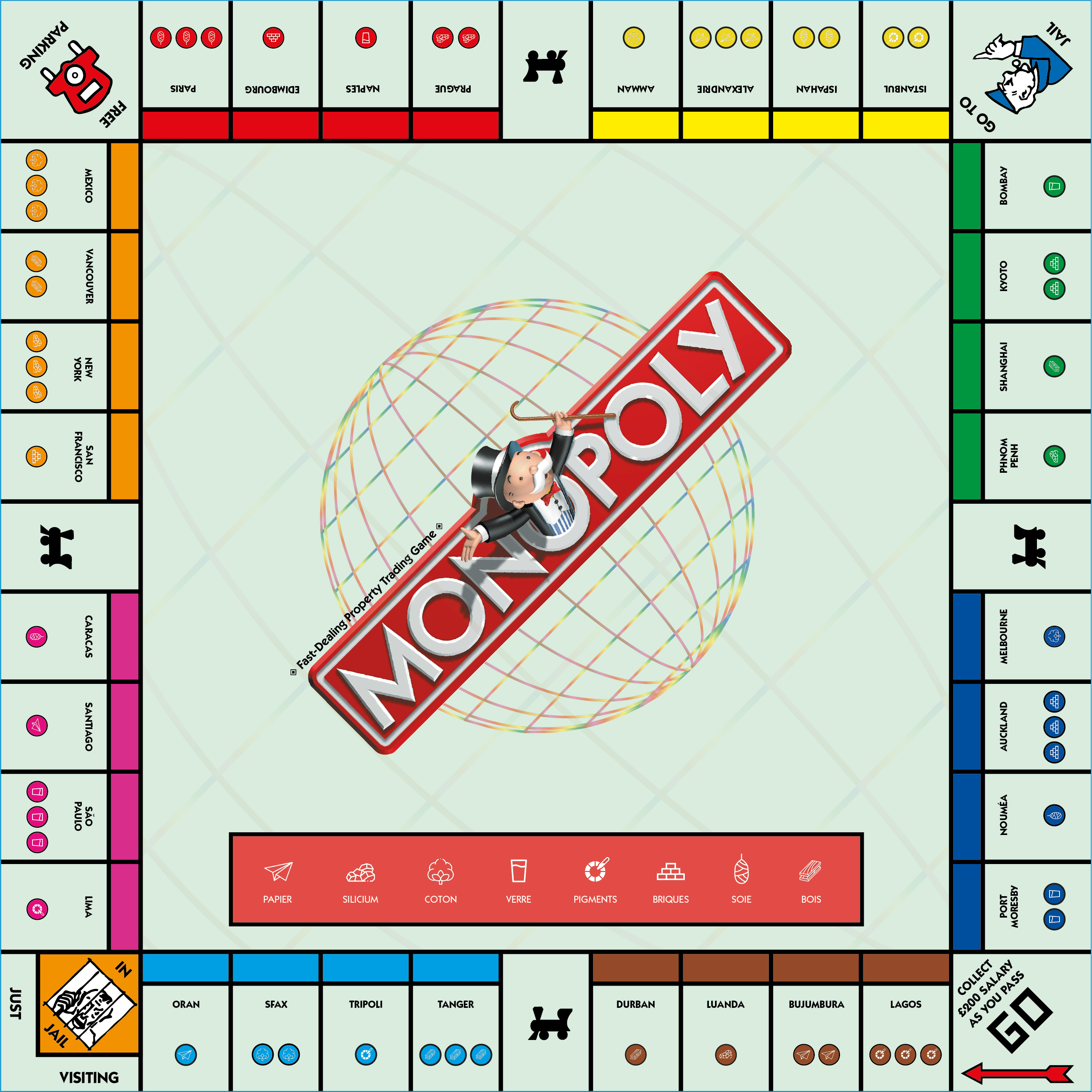
The board, the starting square, the jail passage, the chance cards and the famous property cards have all been adapted for our version of pedagogical Monopoly!
And what would Monopoly be without Mr. Monopoly… The emblematic character accompanies the learner like a mentor throughout the module. He will intervene at various stages of the experience: briefing on the mission, advice and feedback throughout the negotiation phases, and congratulations when the objective is reached.
Better training impact
If we’re fond of gamified modules, it’s not because we like to play games, but because immersive, interactive, game-inspired modules are more effective!
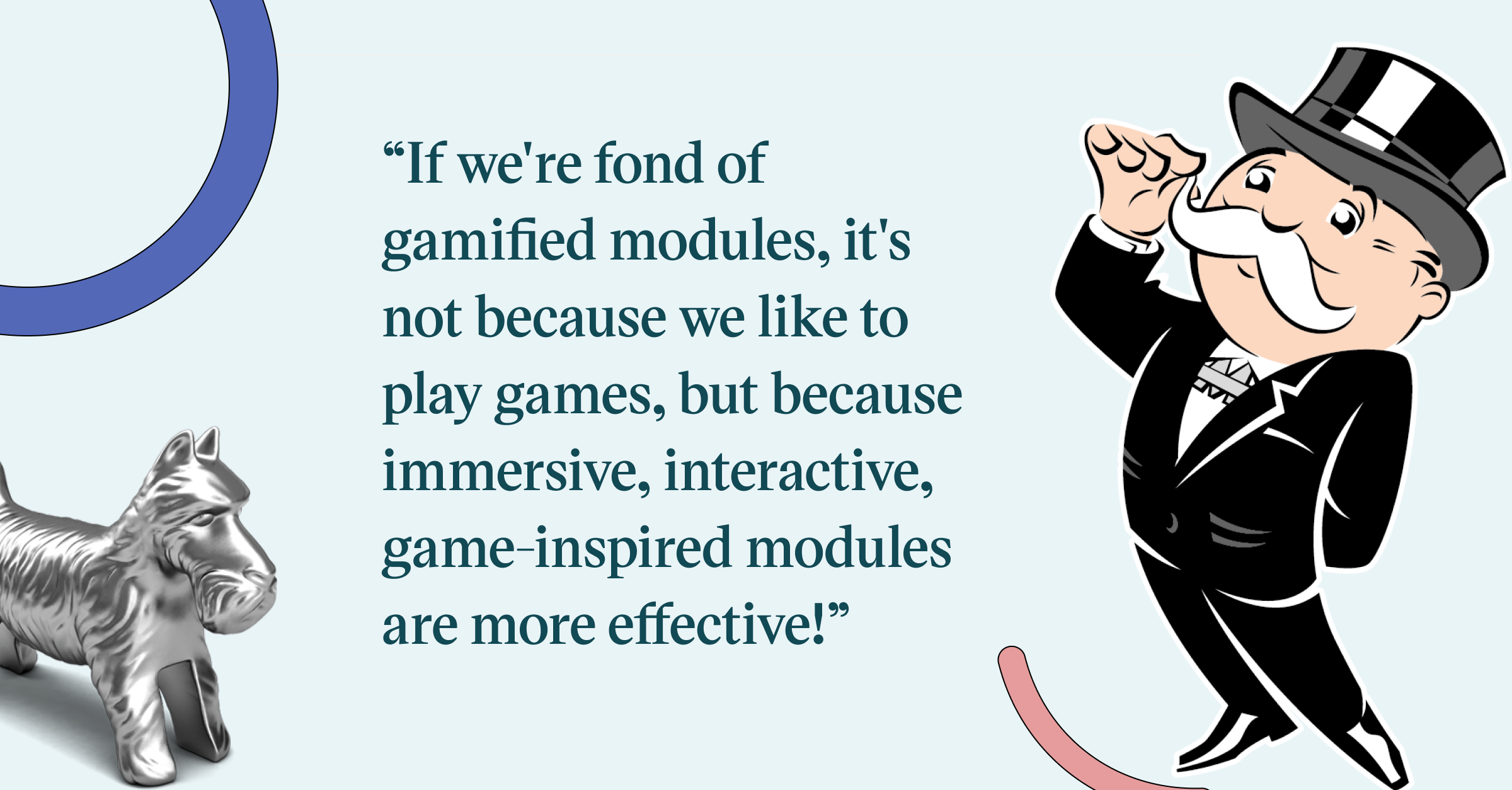
But what is gamification? Gamification involves introducing game-inspired elements or features to make digital learning more interactive, fun and competitive. As a result, gamification encourages learners to become more engaged with the learning medium they are following, increasing information retention and building a learning culture.
Indeed, emotion is a shortcut to memorizing information. When emotions are called upon, our attention is captured, enabling our brain to memorize that moment. In this way, it is also emotions that articulate the inscription of a memory in the memory and consolidate it more or less durably. Indeed, emotion is a shortcut to memorizing information. When emotions are called upon, our attention is captured, enabling our brain to memorize that moment. In this way, it is also emotions that articulate the inscription of a memory in the memory and consolidate it more or less durably.
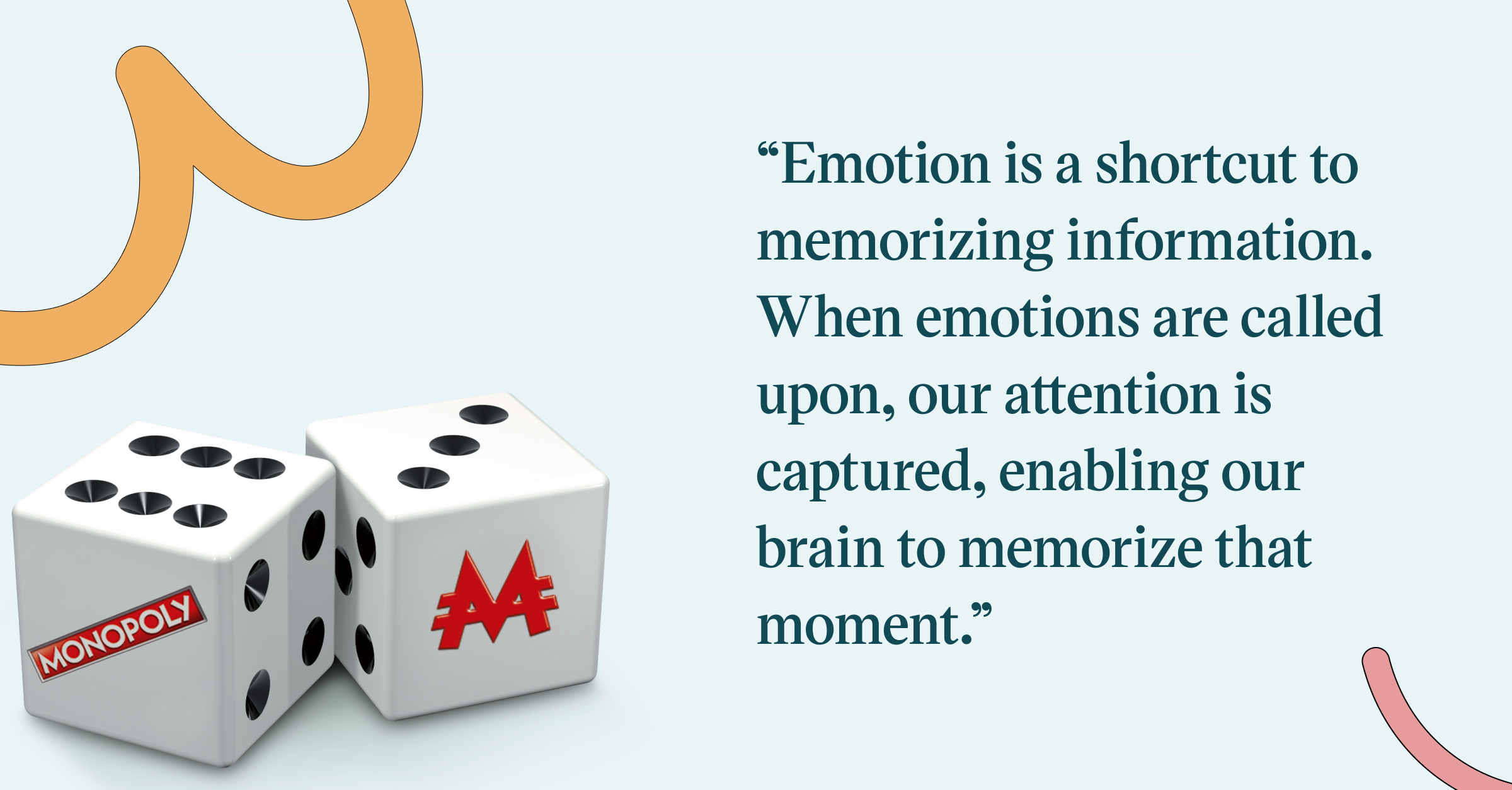
When we play, we feel emotions. Joy, frustration, stress and anticipation – games use these emotions to trigger our memory. By adapting this principle to digital learning, we improve information retention thanks to the learner’s interest in the training module. By experiencing a familiar, nostalgic feeling when returning to the famous game board, learners will pay more attention to what they are learning.
What’s more, the immersive, interactive format gives learners the impression of being in a real game of Monopoly, as opposed to being learning on a training platform. Engagement is guaranteed. In fact, one study revealed that 90% of employees are more productive thanks to gamification.
So don’t wait any longer and discover this innovative new module: “Monopoly: the art of negotiation”.

